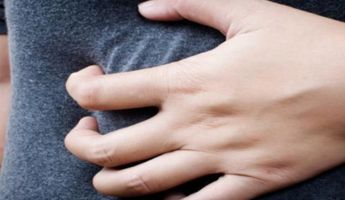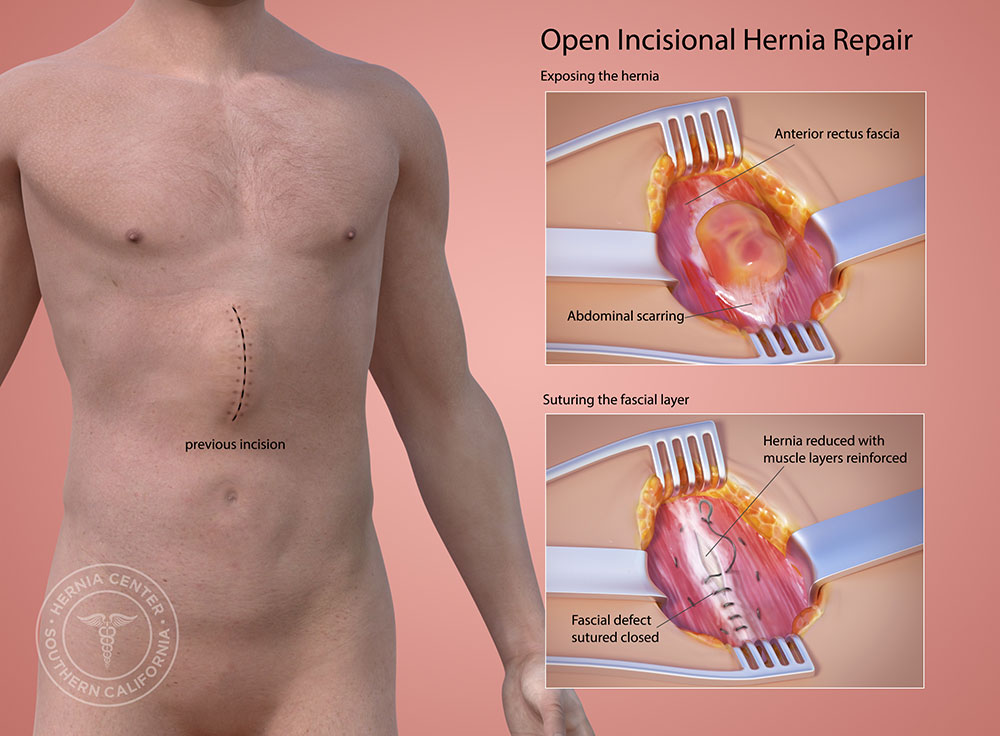Incisional Hernia Repair in Munich
Search and Compare the Best Clinics and Doctors at the Lowest Prices for Incisional Hernia Repair in Munich

Find the best clinics for Incisional Hernia Repair in Munich
No pricing info available
Morocco offers the best prices Worldwide
Price: $ 520
University Hospital of Munich (LMU), located in Professor Huber Platz, Munich, Germany offers patients Incisional Hernia Repair procedures among its total of 223 available procedures, across 26 different specialties. Currently, there's no pricing information for Incisional Hernia Repair procedures at University Hospital of Munich (LMU), as all prices are available on request only. There is currently a lack of information available on the specialists practicing at the Hospital, and they are not accredited by any recognized accreditations institutes
WHY US?
At Medijump, we're making medical easy. You can search, compare, discuss, and book your medical all in one place. We open the door to the best medical providers worldwide, saving you time and energy along the way, and it's all for FREE, no hidden fees, and no price markups guaranteed. So what are you waiting for?

Free

Best Price

Widest Selection

Risk-Free
What you need to know about Incisional Hernia Repair in Munich

An incisional hernia may occur along or near surgical scars in the abdomen. They usually do not cause any issues, but they may get bigger over time. However, when the incisional hernia is getting larger or causing problems, they need to be operated on with a procedure known as incisional hernia repair.
What does a Incisional Hernia Repair Procedure Involve?
There are two different techniques for performing incisional hernia repair, open surgery, and laparoscopic surgery, both are performed under general anesthetic. In open surgery, your surgeon cuts the abdomen open and closes the gap that the hernia protrudes through from the outside, and then a mesh is placed on it to strengthen it. In laparoscopic surgery, your surgeon makes several small incisions to insert surgical instruments and a tiny tube with a camera attached to it (laparoscope).
How Long Should I Stay in Munich for a Incisional Hernia Repair Procedure?
You are usually required to stay in the hospital for one to three days, but in some cases, you may be able to leave the hospital on the same day. However, you are not allowed to travel long-distance right after you have been discharged. You will need to stay in Munich for around 7 to 14 days or until your surgeon says you can fly home. During your stay, you will attend follow-up hospital checkups so your doctor can monitor your condition and remove the stitches.
What's the Recovery Time for Incisional Hernia Repair Procedures in Munich?
The complete recovery for an incisional hernia repair may take around three to six weeks, but you should be able to go back to work two weeks after the surgery. If you have laparoscopic surgery, the recovery time is typically shorter.
What sort of Aftercare is Required for Incisional Hernia Repair Procedures in Munich?
You will need to keep the surgery site clean, but avoid pools, baths, and hot tubs. Make sure to do some gentle exercises as it will help with the healing process, but make sure to avoid any strenuous activities for around 4 to 6 weeks. Your surgeon may give you a diet plan and ensure to follow all instructions.
What's the Success Rate of Incisional Hernia Repair Procedures in Munich?
The success rate of incisional hernia repair is 95% and the rate of recurrence is as low as 3.4%. All complications associated with the surgery are minor and usually require no hospital admission. The risks and side effects include infection, injuries in the abdominal cavity, and pain.
Are there Alternatives to Incisional Hernia Repair Procedures in Munich?
The alternatives to incisional hernia repair are home care measures, which can only be done if the incisional hernia is not causing any issues. The alternatives include maintaining a healthy weight, reducing abdominal pressure, eating healthy, and controlling diabetes.
What Should You Expect Before and After the Procedure
Incisional hernia can be unpleasant and cause serious symptoms. After you have undergone an incisional hernia repair, you should not feel any symptoms and you can get back to normal living.
Whilst the information presented here has been accurately sourced and verified by a medical professional for its accuracy, it is still advised to consult with your doctor before pursuing a medical treatment at one of the listed medical providers
No Time?
Tell us what you're looking for and we'll reachout to the top clinics all at once
Enquire Now

Popular Procedures in Munich
Prices Start From $42

Prices Start From $4

Prices Start From $260

Prices Start From $520

Prices Start From $714

Recommended Medical Centers in Munich for Incisional Hernia Repair

- Interpreter services
- Translation service
- Religious facilities
- Medical records transfer
- Medical travel insurance
- Health insurance coordination
- TV in the room
- Safe in the room
- Phone in the room
- Private rooms for patients available

- Interpreter services
- Translation service
- Religious facilities
- Medical records transfer
- Medical travel insurance
- Health insurance coordination
- TV in the room
- Safe in the room
- Phone in the room
- Private rooms for patients available

- Interpreter services
- Translation service
- Religious facilities
- Medical records transfer
- Medical travel insurance
- Health insurance coordination
- TV in the room
- Safe in the room
- Phone in the room
- Private rooms for patients available
Incisional Hernia Repair in and around Munich
About Munich
Munich is the largest city in Southern Germany and it is one of a few places on earth where traditional and modern sit side by side, with its royal palaces and high-tech cars. Known as the ‘city of art and beer,’ this city is famous for its annual beer festival known as Oktoberfest. What most people do not realize is that Munich is also one of the world’s most famous medical tourism destination. Thanks to the famous German education system that creates skilled specialists, as well as state-of-the-art medical centers that invest in the latest medical technology, medical tourism in this city is a booming business that continues to grow at a fast rate. International patients usually travel to the city for quality rather than the price.
Popular Parts of Munich
Munich boasts a beautiful historic center, amazing German food, large parks and gardens, and beer halls packed with welcoming people. Visitors can explore numerous historical buildings, such as the Church of St. Peter and Frauenkirche. These two buildings have been around for centuries and are located in Munich’s Old Town. One of the most popular attractions in the city is Alte Pinakothek, which is an important art museum that houses over 800 works from the 14th – 18th centuries from German masters. Those who want to have a picnic, hike, simply relax or even try surfing should visit the English Garden. Other popular places include Dachau Concentration Camp, Nymphenburg Palace, BMW Museum, and Deutsches Museum.
Transport in Munich
The international airport of Munich is Munich Airport, which is the second-busiest airport in Germany in terms of passenger traffic. It serves international flights from many cities around the world, including Dubai, Bangkok, and Atlanta. Munich has a comprehensive network of public transportation that will take visitors virtually anywhere around the city. The most common transit system is the U-Bahn, which is a fast and easy underground subway system. Buses, trams, and commuter trains are also available and each has a vast network. Taxis are easy to hail, reliable, and safe. However, they are a bit pricey and Uber operates in Munich.
Visas in Munich
As a member of the Schengen Area, Germany allows citizens of several countries, including Australia, New Zealand, the US, and Poland to enter and stay in the country without a visa for up to 90 days. Citizens of other countries not listed in the visa-free entry need to obtain a visa to visit the country. Always check the requirements for Germany Visa Application before applying.
Weather in Munich
From June to August is the summer, which is a popular time to enjoy outdoor activities as the temperatures hover around 24°C. On very hot days, the temperatures can reach 30°C. Autumn (September – October) and spring (March-May) has pleasant weather with mild temperatures. Winter can be very cold, with temperatures dropping as low as -10°C.
Additional Info
- Local Currency: Euro (EUR) is the official currency. 1 EUR is approx. 1.12 USD.
- Money & Payments: ATMs are easy to find. Credit cards are not widely accepted and tipping is common practice.
- Local Language: The official language is German. Many people, particularly in tourism areas, understand English to some extent.
- Local Culture and Religion: Christianity is the largest religion in the city, followed by Islam, Buddhism, Hinduism, and Judaism.
- Public Holidays: Munich celebrates numerous holidays, including New Year’s Day and Christmas Day. It also hosts several festivals throughout the year, such as Oktoberfest in October.
Popular Searches
- Plastic Surgery in Thailand
- Dental Implants in Thailand
- Hair Transplant in Thailand
- Breast Augmentation Thailand
- Gastric Sleeve in Thailand
- Gender Reassignment Surgery in Thailand
- Laser Hair Removal in Bangkok
- Botox in Bangkok
- Dermatology in Bangkok
- Breast Augmentation in Bangkok
- Coolsculpting in Bangkok
- Veneers in Turkey
- Hair Transplant in Turkey
- Rhinoplasty in Turkey
- Stem Cell Therapy in Mexico
- Rhinoplasty in Mexico
- Liposuction in Mexico
- Coolsculpting in Tijuana
- Rhinoplasty in Korea
- Scar Removal in Korea
- Gastric Sleeve in Turkey
- Bone Marrow Transplant in India
- Invisalign in Malaysia
- Plastic Surgery in the Dominican Republic
- Tummy Tuck in the Dominican Republic
- Plastic and Cosmetic Surgery in Poland
- Rhinoplasty in Poland
- Hair Implant in Poland
- Dental Implants in Poland
- IVF in Turkey
